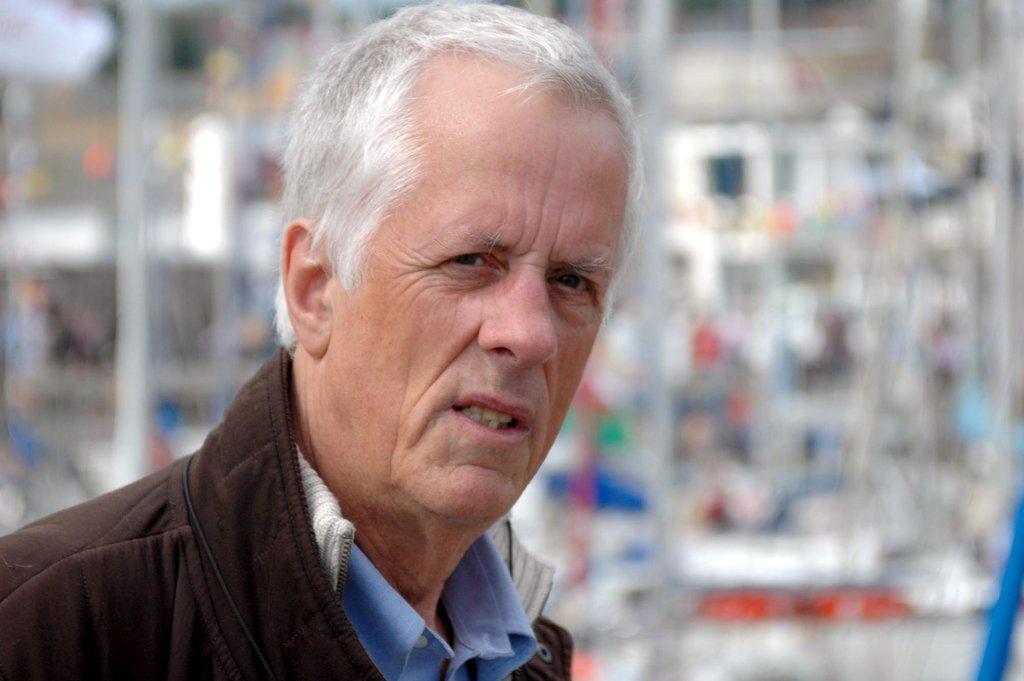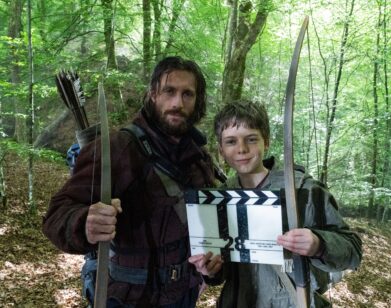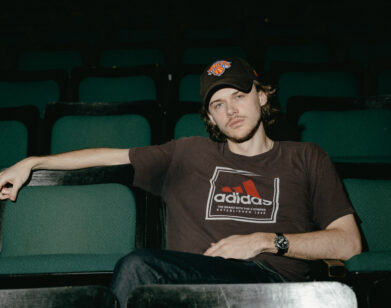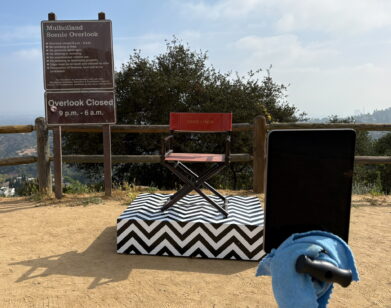Michael Apted is Up to 56

ABOVE: MICHAEL APTED
Before the Kardashians or Survivor castaways or The Real World housemates, there were the children of Michael Apted’s 7 Up series. In 1964, Apted documented the lives of 14 very different seven-year-old British children for the film 7 Up. Every seven years since, Apted has checked in on them through marriages, midlife crises, divorce, and everything in between. The Up series has become a landmark documentary project as it reveals the drama in lives of ordinary British citizens. While Apted has gone on to do Hollywood blockbusters including The Chronicles of Narnia: The Voyage of the Dawn Treader and the James Bond film,The World is Not Enough, he has always returned for the latest installment of the Up series. This year Apted has reached 56 Up, which finds the familiar faces of the series with a few more wrinkles as they head towards retirement age. We talked to Apted about his relationship with the subjects off camera and how living in America has affected his filmmaking.
GILLIAN MOHNEY: In this film and in earlier films, a lot of the subjects talk about the problems they have with the Up series, even though nearly all of them come back for every installment. Does that ever impact how you approach them to do the film?
MICHAEL APTED: Well, I think they like to torture me. To an extent, they got into this and it wasn’t their decision. It was up to their parents and their schools [when they were] 7 and 14. I think when they reached adulthood, they were in the middle of this roller coaster. I think there’s a residual anger about that. On the other hand, they do have some considerable loyalty to it all, which is really the reason they come back. The fact is that they sort of trust me. There’s lots of complaints over the years in the film, some quite vigorous… I think they do trust me, and I think they do sense it is worthwhile project. They are a part of it, and maybe the good outweighs the bad. They always do come back—and some of them come back purely out of self-interest; Peter comes back [to promote his band]. But again I think that’s fair enough; I don’t care why they come back as long as they give me at least some of what I want. That’s fine by me.
MOHNEY: You’ve been in the lives of these people since they were children; what is your relationship with them outside of the films? Is this series always in the back of your mind, even when you’re doing other projects?
APTED: It is always there, and some of them I do see. For example, in the summer, Bruce and his family came up to California and they came to see me for a couple of nights in Los Angeles. When I go back to London, I sometimes see them. When I’ve got a movie opening in London, I usually try to arrange a screening for them to bring their families and neighbors. If it’s a Bond film, they’re thrilled, and if it’s not, they may or may not show up. It’s nice for me to do things for them sometimes, because it’s not me as a supplicant asking for things. There’s no rule to it. Some I never speak to between the seven years, others I speak to quite a bit. It’s a bit like a family. I’m closer to some than others, but we’re all bonded by some bloodline, as it were.
MOHNEY: A lot of this film focuses on how the subjects’ lives have changed due to the recession and austerity cutbacks in England. Since you have lived in America for a few decades, were you ever concerned you’d miss something by not actually being in England or that it would affect your view of the series in general?
APTED: That’s always a bit of a worry. The first thing that comes to mind is, “What am I missing?” I still have a place in London, I have family in London, in the last decade or so I’ve worked quite a lot in London. But I’m not living there. So a lot of subtext I may have missed. On the other hand I do have a perspective, I can see the wood from the trees. I also have a more international view of the world. I think it’s both a plus and minus, but I am aware of it. I have someone, [producer] Claire Lewis, who has worked with me since 28 Up. She lives in England and has done some of the wrangling with them. She sees them and checks in with them and that sort of stuff. That is really my touchstone about what’s going on in England, but that’s a fair point.
MOHNEY: Nearly everyone talks about politics of the recession in the film, is that something you wanted to explore or did it come up organically in the interviews?
APTED: I never encourage them to sound off on politics unless it has to do with their daily living. I think the recession has gone very deep into British society, I think it’s affected a lot of people, so that’s reflected in the interviews. I didn’t direct it that way. But it’s been such an important part, and it continues to be an important part in life in England. It’s impossible to interview English people in any depth without bringing it up. As long as the politics is organic, I think it’s good to have it.
MOHNEY: I found in the film compared to the others, everyone seems very settled and content. Which is not to say that it’s boring, but it’s kind of a nice place to find everyone. Was that surprising to you?
APTED: I was surprised by the film, [but] I try not to second-guess it. I thought it would be more depressing. I thought people would be more worried about getting to retirement age, worried about money, worried about health, and all this. But they weren’t. It seemed to me that they’ve found some peace and solid ground in their relationships with their immediate and extended families. I don’t often go back and look at the films, because I don’t want to anticipate what they’re going to say. I’ve learned that mistake. I’ve noticed that there’s a different tone in each of the films, which I can’t predict. If I try to guess at it, I’ll spoil it for it myself more than anyone else. I was surprised by the kind of peace they seem to have. Which I didn’t expect at all… Despite the fact that the economic issues were pretty much widely discussed by all of them, that wasn’t the thing that was most striking. The thing that was most striking was that they do seem to have some comfort in where they are in their lives. Although they are coming to the end of their work life, so you never know. It’s always dramatic in a sense because it’s always different.
MOHNEY: You’ve been working on this for over half a century, do you anticipate you will keep working on it in the future or is it something that you approach installment by installment?
APTED: I like to keep it going. I’ve come so far with it. I’ve sort of by accident created a genre of documentary. Why not keep going with it? I’ve gone farther and farther than everybody. I’ve always felt I’d stop it if too many of them dropped out or if I think it becomes boring or predictable. None of that has happened. As long as I can retain my marbles then I want to keep it going.
56 UP OPENS AT IFC CENTER IN NEW YORK TOMORROW, JANUARY 4, AND IN LOS ANGELES ON JANUARY 18. A NATIONAL THEATRICAL RUN WILL FOLLOW.






